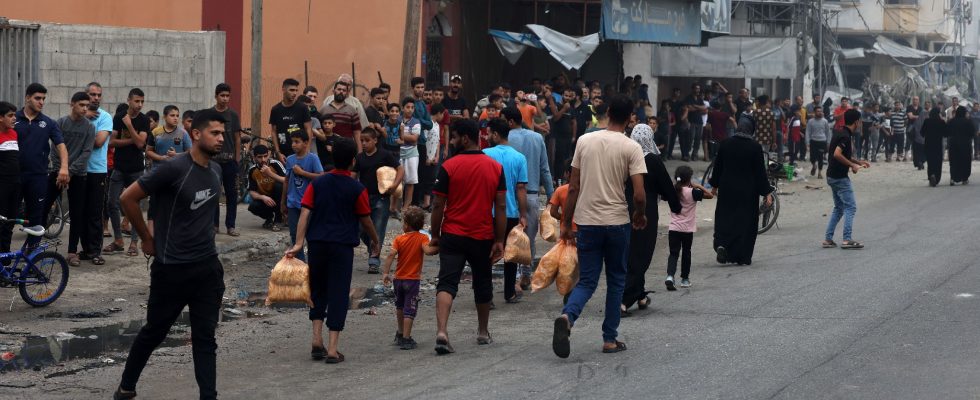29%. Here is the percentage of Gazans who had confidence in Hamas, just before the bloody attack of October 7. Revealed by Foreign Affairs, this figure comes from the Arab Barometer, an independent research network which serves as a reference for the Middle East and North Africa. 44% of Gaza residents have absolutely no confidence in the Islamist movement. 72% believe that corruption is significant within the institutions governing them. Only 24% would be ready to vote for Ismaïl Haniyeh, political leader of Hamas voluntarily exiled in Qatar, in the case of very hypothetical elections. And many more Gazans attribute the responsibility for food difficulties to poor management by Hamas (31%) than to an external blockade decided by Israel and Egypt (16%). According to the World Bank, the poverty rate in Gaza increased from 39% in 2011 to 59% in 2021, with many residents struggling to afford basic necessities due to their scarcity and cost.
Above all, this valuable study confirms that beyond Hamas’s negligence, only a minority of Gazans share its deadly ideology aimed at destroying Israel. Half of them believe that democracy is the best form of government. 54% support a two-state solution. 73% favor a peaceful resolution to the Israeli-Palestinian conflict, compared to 20% who favor a military solution that could lead to the destruction of Israel (unsurprisingly, a large majority of the latter are supporters of Hamas).
The survey, the most recent for Gaza (it was carried out from September 28 to October 8), provides a scathing refutation of the discourse within the Western extreme left which attempts to assimilate a terrorist movement to the Palestinian cause in its together. Even from the Gazans’ point of view, the Islamist organization is a burden. But these figures also contradict all those who, like Israeli President Isaac Herzog, wanted to attribute responsibility for the pogroms of October 7 to an entire people. Especially since in the eyes of a majority of Gazans, freedom of expression is in no way guaranteed in the territory where they live. 68% of respondents in Gaza even believe that the right to participate in a peaceful demonstration is not or hardly protected under the Hamas regime.
Past Arab Barometer data highlights that each Israeli military response against the Gaza Strip strengthens Hamas’s popularity, while periods of appeasement are particularly harmful to it. We therefore understand the interest for a terrorist organization, with particularly faulty political and economic management, to sow terror, then hoping to unite Gazan public opinion under Israeli bombs.
For those responsible for the study, Amaney A. Jamal, professor at Princeton, and Michael Robbins, director of the Arab Barometer, today we must break the cycle of violence: “Israel, like the United States, must recognize that the people The Palestinian Authority is an essential partner in the search for a lasting political settlement, not an obstacle to this laudable goal. If both countries seek only military solutions, they will likely push the residents of Gaza into the arms of Hamas, which will guarantee renewed violence in the years to come.” We also note that more Gazans wish to develop stronger economic ties with the United States (37%) than with Iran or Russia (32% in both cases).
To have believed that we could eclipse the Palestinian question, in particular through a rapprochement between Israel and Sunni states, was a tragic illusion. Only 10% of Gazans supported this normalization of diplomatic relations between the Jewish state and countries such as the United Arab Emirates or Morocco. “If Arab countries were to settle their differences with Israel without making resolution of the Israeli-Palestinian conflict a precondition for normalization, any lingering hope for a two-state solution would vanish,” analyze Amaney A. Jamal and Michael Robbins . Above all, their survey confirms that Gazans are strongly attached to their native land: 69% of them assure that they have never even considered the option of leaving it. A higher proportion than for residents of Lebanon, Jordan, Morocco or Tunisia, who were asked the same question. Despite the economic, political and today humanitarian crises, Gazans are firmly determined to stay in Gaza.
